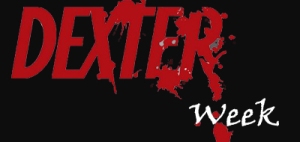 After hearing about this book from my friend E., I found it at a library book sale a few weeks ago and picked it up for a dollar. I’m not generally a mystery person, I’ll admit. As you might tell from some of the other books I have reviewed, I’m far more into the Fantasy and the Sci-Fi ends of things. And Vampires. Never forget the Vampires.
After hearing about this book from my friend E., I found it at a library book sale a few weeks ago and picked it up for a dollar. I’m not generally a mystery person, I’ll admit. As you might tell from some of the other books I have reviewed, I’m far more into the Fantasy and the Sci-Fi ends of things. And Vampires. Never forget the Vampires.
I was a bit afraid that it would be dry and that I would put it down half way because the plot was getting too hard to follow, or a plot device came out of left field that tied everything up in a bow and everyone could move on from there quite neatly. Sadly, that has been my experience with most mysteries. But my Grandma enjoys Evanovich, and E. likes a lot of the same types of books that I do.
First, this is a terrible book to read before bed, because you will. not. put. it. down. It hooked me at the beginning and didn’t let go until the end. Finished it in about a day and a half when all was said and done, reading it on breaks at work, before bed, and while food was cooking. The characters are all clear and multi-dimensional, and could easily be someone you see walking down the street. The myriad of plot lines twist and turn together in such a way that though they might get confusing, they never get hopelessly entangled and it never seems as though Evanovich has written herself too far into a corner. The twists and turns in the plot make sense when you get to them and I felt dense a few times when I didn’t see where it was going until after it already got there.
The main character, Stephanie Plum, meets with wonderfully crazy people all over, from completely insane and scary to her almost weekly lunches with her Italian family in Trenton. I’m a person who loves a good dash of reality in all my stories too, and it’s clear to me that research was done for this tale. The details in Stephanie’s cars and forms of transportation was always a wonderful way to break tension in the story too, letting the reader catch their breath when things began to get intense.
My one issue with this first book in the Plum series is that it ended far too quickly. It was very much a fade to black at the climax of the story and it was just explained to the reader in the last chapter what happened. Telling instead of showing. Personally, I felt rather cheated at the ending and would have liked to have “witnessed” what happened instead or having it be revealed later. But to each his or her own, so I can deal with it.
It’s a quick read, so I got my $1 out of it that I originally spent, but I don’t know if I would pay full price for it. Thankfully, there are libraries and Half Price Books, so I’m set for when I look for the next one in the series: Two for the Dough.
As a side note: I’ll be visiting my family and sister this weekend, so I’ll be interviewing the Sister regarding her thoughts on the Hunger Games while I’m there. Something to look forward to.
cover photo of book from here: http://0.tqn.com/d/bestsellers/1/0/g/9/-/-/one_money.jpg


 My first reaction on seeing this book was how thick it was. It’s over 600 pages as a paperback, and I will admit that I was daunted at first by its size. So many fantasy books of this size are often filled with fluff, and the core of the story isn’t seen until late into the final third.
My first reaction on seeing this book was how thick it was. It’s over 600 pages as a paperback, and I will admit that I was daunted at first by its size. So many fantasy books of this size are often filled with fluff, and the core of the story isn’t seen until late into the final third. One of my favorite things in the world to do is to read a new book, doubly so when it’s from a new author. Or at least an author that I haven’t heard of before, as Beth Bernobich certainly isn’t new to the world of writing.
One of my favorite things in the world to do is to read a new book, doubly so when it’s from a new author. Or at least an author that I haven’t heard of before, as Beth Bernobich certainly isn’t new to the world of writing.




